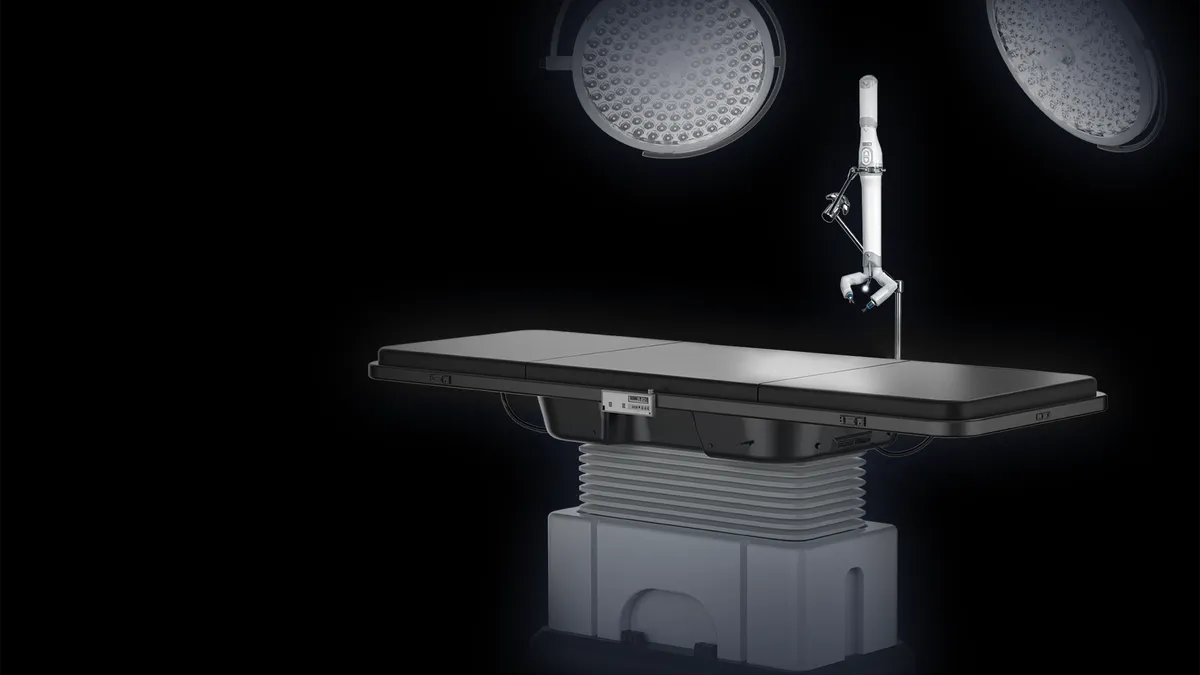Dive Brief:
- Virtual Incision has won de novo authorization for a miniaturized robotic-assisted surgery device in adults undergoing colon resection.
- The device, which is called Mira, weighs approximately two pounds and fits into a tray that can be carried between operating rooms. Virtual Incision believes the compact, portable design may make robotic-assisted surgery practical in hospitals that lack the space for other devices.
- Intuitive Surgical already sells its da Vinci device for use in colon resection surgery. The robotics leader has continued to grow as competition has intensified and filed for clearance of a next-generation device. Virtual Incision will launch its challenger through a “first access program” at selected sites, according to its Saturday announcement.
Dive Insight:
Multiple companies have designed smaller robots to compete with Intuitive’s market-leading da Vinci system. CMR Surgical, for example, has raised hundreds of millions of dollars to develop and commercialize a modular, portable robot but has focused on markets outside the U.S. to date. In contrast, Virtual Incision has put the U.S., where Intuitive generates two thirds of its revenues, at the top of its list of target markets.
The company is targeting what it estimated as the 90% of U.S. operating rooms that lack access to robotic-assisted surgery devices. Virtual Incision believes “complex logistics such as dedicated operating room space, specially trained staff, added steps during setup and turnover, and a substantial cost for the equipment” have prevented many sites from installing current systems. Mira is designed to clear those barriers.
Virtual Incision’s device has a “tray-to-table design” that could allow hospitals to perform robotic surgery without organizing the operating room around a mainframe product such as da Vinci. The robot can be set up “within minutes,” according to Virtual Incision, and serve as either “a complement to the existing mainframes or as a stand-alone platform.”
The company filed for de novo authorization in April 2023 on the strength of a clinical trial that evaluated Mira in bowel resection procedures. Almost half of the procedures, which are also called colectomies, were performed as open surgeries from 2010 to 2016, and Virtual Incision sees an opportunity for surgeons to conduct more minimally invasive procedures.
The company plans to ramp production of the device and expand to additional sites over time but did not detail a specific timeline. In parallel, it will work to expand into procedures including gynecology, general surgery, urology, and other soft tissue and solid organ surgeries. It plans to study Mira in gynecological procedures this year.










